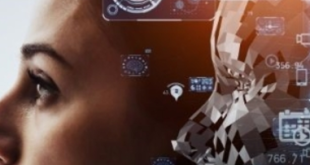The rise of AI and digitization is revolutionizing the way we work, ushering in an era of unprecedented change and opportunity. India, leading the global charge with over 25% AI adoption, is at the forefront of this transformation. Industries like healthcare, retail, manufacturing, logistics, and IT services are leveraging technology to drive innovation and efficiency. Amidst all the talk about AI replacing jobs, the narrative is evolving—this isn’t just about displacement; it’s about adaptation and growth. According to the World Economic Forum, while 83 million jobs may phase out by 2027, 69 million new roles are expected to emerge, underscoring a future where human ingenuity remains the cornerstone of progress.
Entry-level positions, the foundation of career beginnings and organizational growth, are adapting to these changes. These roles demand creativity, adaptability, and emotional intelligence—qualities AI simply cannot replicate. A.R. Ramesh, CEO of TeamLease Degree Apprenticeship, shares a list of the top 10 entry-level roles that AI cannot replace amidst the rising AI revolution.
-
Prompt Engineers: Professionals who design and refine AI prompts to ensure accurate and relevant outputs. These roles require a deep understanding of both technology and human context, making them irreplaceable by AI.
-
Quality Engineers and Testers: These individuals assess and validate the functionality, reliability, and safety of products and software. While AI can assist, the nuanced decision-making and attention to detail required in testing make human involvement indispensable.
-
Vocational Teachers: Educators who specialize in skill-based training for sectors like electronics, automotive, and renewable energy. Their ability to adapt lessons and provide personalized instruction tailored to each student’s learning style ensures a role AI cannot replicate.
-
Network Engineers: Experts responsible for designing, implementing, and maintaining secure and efficient network systems. While automation aids in network management, the strategic planning and troubleshooting involved require human expertise.
-
UI/UX Designers: These creative professionals design digital interfaces that are intuitive, engaging, and user-friendly. Despite AI’s advancements, understanding human emotion, aesthetics, and behavior is a uniquely human skill in design.
-
Medical Assistants: Workers providing essential support in patient care, administration, and clinical procedures. Their empathetic approach to patient interaction and on-the-ground support in healthcare environments cannot be replaced by machines.
-
Logistics Coordinators: These professionals ensure the efficient movement of goods through supply chains. While AI can optimize processes, human problem-solving is essential when dealing with unexpected delays, route changes, or logistical challenges.
-
Heavy Skilled Workers and Technicians: Skilled workers in sectors like electronics and manufacturing who perform intricate tasks requiring physical dexterity, problem-solving, and adaptability in unpredictable environments.
-
Electrical Technicians: Technicians who install, repair, and maintain electrical systems, ensuring the safe operation of equipment. The hands-on nature of this role, along with the need for specialized, on-site expertise, makes it resistant to automation.
-
Construction Workers: Skilled laborers who build and maintain infrastructure, working in dynamic and often hazardous environments. Their ability to adapt to changing conditions and ensure safety is a critical factor AI cannot replicate.
As AI continues to evolve, skilling remains the cornerstone of a successful workforce. While AI may transform many aspects of work, it cannot replace the uniquely human traits—such as creativity, critical thinking, and emotional intelligence—that are essential in many roles. The key to thriving in this changing landscape is continuous learning and adaptation. As industries embrace new technologies, those who invest in developing these irreplaceable skills will not only stay relevant but also lead the way in an increasingly AI-driven world. The future of work lies in the synergy between human talent and technological innovation.
 Newspatrolling.com News cum Content Syndication Portal Online
Newspatrolling.com News cum Content Syndication Portal Online






